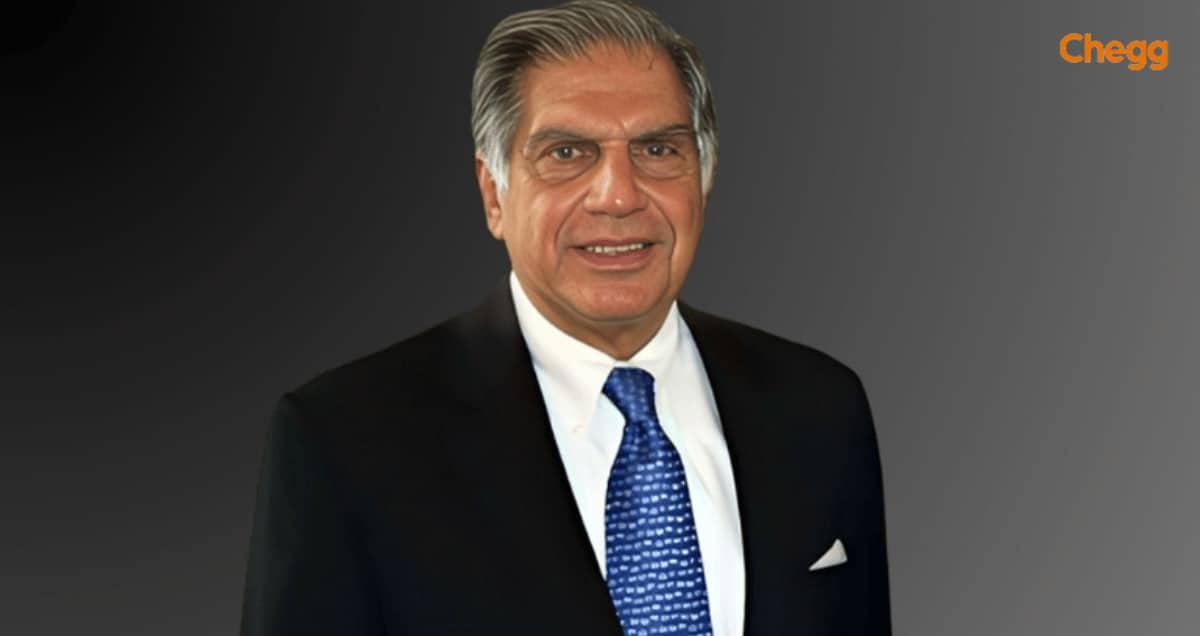B.Sc Radiology – Course Details And Jobs In India
Bachelor of Science in Radiology (B.Sc Radiology) is a 3-year graduate program. It is a paramedical course for students who want to have a medical practice in diagnostics using radiation technology. Radiologists are mainly responsible for curing the disorders that affect the internal organs of patients. Radiography is also used for the treatment of cancer. […] The post B.Sc Radiology – Course Details And Jobs In India appeared first on Chegg India.

Bachelor of Science in Radiology (B.Sc Radiology) is a 3-year graduate program. It is a paramedical course for students who want to have a medical practice in diagnostics using radiation technology. Radiologists are mainly responsible for curing the disorders that affect the internal organs of patients. Radiography is also used for the treatment of cancer.
Radiology involves the use of CT scans, X-Rays, and MRIs. It involves scanning the body to understand the issues involved in the internal organs. Radiology students are trained to use radiographic imaging to extract useful information about patients.
After completing B.Sc in radiology, students can go for higher studies like M.Phil, M.Sc, or Ph.D. Further, it opens the doors for multiple job opportunities like radiology technicians, assisting radiologists, radiographers, medical image analysts, etc.
Let us decode the B.Sc Radiology course in detail in this article.
B.Sc Radiology – Key Highlights
Following are some of the key B.Sc Radiologist course details:
| Course Name | B.Sc Radiology |
| Course Level | Undergraduate |
| Time Duration | 3 years |
| Minimum Eligibility Required | 10+2 in Science Stream |
| Entrance Exams | NEET, AIIMS |
| Admission Routes | Either through an entrance exam or merit |
| Fees for the Entire Course | From Rs. 10,000 to Rs. 10 lakhs |
| Job Profile | Radiographer, radiation protection specialist, X-ray technician, therapy radiographer, medical image analyst |
Skills Required for B.Sc Radiology
The B.Sc Radiology course is one of the top medical courses in India. Students enrolling for B.Sc Radiology learn about the human body and obtain all the necessary knowledge for becoming a radiologist.
However, apart from the knowledge about radiology, students also learn specific skills that help them prosper in their careers. These skillsets include the following:
- Problem-solving skills
- Organizational skills
- Medical knowledge
- Analytical skills
- Research skills
- Communication skills
- Observational skills
- Interpersonal skills
List of Entrance Exams for B.Sc Radiology
Students can get admission in a B.Sc Radiology course either through an entrance exam or based on merit. Following are the entrance exams you can appear for if you wish to enroll in B.Sc Radiology:
- NEET: National Eligibility cum Entrance Test (NEET) is a national-level exam for admissions to medical colleges in India. It is a relevant entrance exam for admissions to B.Sc Radiology and Imaging courses. A radiology eligibility test will then determine the university from which the candidate can pursue radiology.
Top Colleges for B.Sc Radiology in India
Following are some of the top colleges for B.Sc Radiology courses in India:
AIIMS Delhi, New Delhi
AIIMS Delhi is one of the premier medical colleges in India. It is duly recognised by the UGC and Medical Council of India and has secured 1st rank for the second time in the NIRF 2019 in the medical category. Apart from education, it also offers placement opportunities to the students.
CMC Vellore, Tamil Nadu
CMC Vellore was set up in 1900 by Dr. MGR Medical University in Chennai, Tamil Nadu. CMC Vellore was ranked 3rd by the NIRF in 2019. It offers multiple under-graduation, post-graduation, and diploma courses in medicine. Further, it also provides the facility of hostels to the students.
The Institute of Liver and Biliary Science (ILBS), New Delhi
ILBS is an autonomous institute that is dedicated to providing an international center of excellence for the diagnosis, management, training, and research. It is a deemed university by the University Grants Commission.
KGMU, Lucknow
King George’s Medical University (KGMU) was established in Lucknow in 1911 and is recognized by UGC. It offers various courses in the field of MBBS, MD, MS, Ph.D., BDS, MDS, B.Sc. in Nursing, etc.
BMCRI, Bangalore
Bangalore Medical College and Research Institute (BMCRI) is one of the topmost medical colleges in the state of Karnataka and India. It is an autonomous institute in Bangalore and is affiliated with the Rajiv Gandhi University of Health Sciences.
B.Sc Radiology Admission
Admission to the B.Sc Radiology course is based on performance in the entrance level examinations. There are various colleges and universities across India that offers B.Sc in Radiology. Following are some of the important points concerning B.Sc Radiology admissions:
- NEET is the principal exam for admission in B.Sc Radiology across India.
- There can be institution-level exams in certain institutions for getting admission to B.Sc Radiology.
- The candidates desiring of pursuing a B.Sc in radiology needs to clear 10+2 in the science stream. After clearing the same, they should enroll for NEET examinations.
- However, the marks secured in entrance examinations alone are not sufficient. Weighted average marks from both the board examinations and NEET entrance-level exams are considered. Usually, 60% weightage is given to the NEET examinations while 40% weightage is given to the board examinations.
- Once the candidate secures the required marks, he shall proceed with the admission process, take the counseling, lock the seats allotted and avail himself the admission.
B.Sc Radiology Fees
B.Sc Radiology course fees depend upon the college from where the candidate is pursuing the course. In case the students are pursuing radiology courses in a government college or university, then the B.Sc Radiology fees will be far lower as compared to that charged by the private universities and colleges. In any case, the radiologist course fees for the entire 3 years can be anywhere between Rs. 10,000 to Rs. 10 lakhs. Further, if a student goes to a foreign college or university, then the radiology course fees along with the cost of lodging, food, and travel can be significantly higher than in India.
B.Sc Radiology Subjects and Syllabus
As stated earlier, B.Sc is a 3-year program. It consists of 6 semesters over the course of 3 years helping students obtain detailed knowledge about radiology. Following are the B.Sc Radiology subjects and syllabus:
1st Year
| Semester-I | Semester-II |
| Pathology | General radiography |
| Anatomy | Fundamentals of computer science |
| Physiology | Radiation hazards and protection |
| Generation and properties of X-ray | Communication and personality development skills |
2nd Year
| Semester-III | Semester-IV |
| General radiography 2 | MRI 1 |
| CT Scan 1 | Environmental Science |
| Ultrasound | Organizational behavior |
3rd Year
| Semester-V | Semester-VI |
| Nuclear medicine and PET scan | Intervention in diagnostic radiology |
| MRI 2 | Human resource |
| CT Scan 2 | Anesthesia in diagnostic radiology |
| Doppler and Echography |

Jobs After B.Sc Radiology
B.Sc Radiology opens the door to multiple opportunities. Following are some of the lucrative job options available after completing the B.Sc Radiology course:
X-Ray Technician
X-Ray technicians are responsible for taking X-Rays of the internal anatomy of the patients. They help physicians to identify and diagnose diseases, illnesses and injuries. Further, they need to ensure that the patients are exposed only to a limited amount of radiation. They are skilled in taking quality X-rays of the bones, organs, joints as well as soft tissues of patients.
Their other responsibilities include attending mandatory training sessions and staff meetings, monitoring the radiology supplies, ensuring that the x-ray machines are set at correct radiation levels, keeping the x-ray rooms clean and tidy all the time etc. The average salary of x-ray technicians is between Rs. 2 lakhs to Rs. 4.5 lakhs per annum.
Radiographer
Radiographers are responsible for operating the X-ray equipment. They produce high-quality diagnostic images that are key to identifying internal abnormalities and injuries. Sonography, computed tomography, mammography, vascular interventional radiography, MRI etc. are some of the diagnostic images that radiographers produce using specialised equipment.
They have a very thorough understanding of the body structures of the patients. The average salary of radiographers in India is between Rs. 3 lakhs to Rs. 5 lakhs per annum.
Therapy Radiographer
Also known as radiation therapists, therapy radiographers often work with the oncology teams for determining the best course of radiation treatment for the patients. They work under the supervision of radiation oncologists and specialise in the planning and execution of radiotherapy treatments. Radiation therapy is one of the most important treatments in treating cancer patients.
This can be done either with the help of a machine placed outside the body or by placing radioactive materials inside the patient’s body near the cancer cells. Further, they also advise on side effects and monitor the progress of the patient’s health. The average salary of a therapy radiographer can be anywhere between Rs. 5 lakhs to Rs. 7 lakhs per annum.
Radiation Protection Specialist
As the name suggests, radiation protection specialists use scientific techniques and equipment to monitor and measure radiation and ensure safety at the workplace. They advise, assist, supervise and train employees regarding radiation safety compliances. Further, they are responsible for reviewing the protocols and proposals regarding the use of radioactive materials and radiation-generating devices.
They also perform radiological surveys in all the facilities where radioactive materials are kept or radiation-generating devices are used. The average salary of a radiation protection specialist is anywhere between Rs. 6 lakhs to Rs. 9 lakhs per annum.
Diagnostic Radiographer
Diagnostic radiographers are responsible for capturing images that are key for the diagnosis of internal illnesses or injuries. Apart from x-rays and MRIs, diagnostic radiographers work with different imaging methods such as fluoroscopy, angiography, ultrasound, computerized tomography (CT) etc. They help interpret the images to identify and detect internal issues in a patient’s body.
They not only conduct radiography examinations on patients but also undertake the responsibility for radiation safety in their work area. Further, they also assist in complex radiological examinations and work along with doctors like surgeons and radiologists. The average salary of a diagnostic radiographer can be anywhere between Rs. 5 lakhs to Rs. 8 lakhs per annum.
Related:
DMLT Course: Details, Admission, Eligibility, Scope
Courses and Career after B.Sc. Nursing in India
Top 15 Career Options in Biology- Skills & Salary
In a Nutshell
The B.Sc Radiology course is one of the interesting course options for medical students. It opens the doors for multiple opportunities and is paid well in the industry. Further, radiography course fees are affordable compared to other medical courses. Apart from the job options after completing B.Sc Radiology, they can also go for a postgraduate qualification. This will further help them polish their academic knowledge and boost their career.
However, while pursuing under-graduation or post-graduation, if one is interested in sharing knowledge and helping solve other students’ queries, then Chegg provides a platform to such medical students and professionals. The medical students and professionals can share their knowledge and experience with the students by becoming Chegg Q&A experts. Here, they can earn by answering questions of students worldwide. They also get the opportunity to meet experts in diverse fields and build a strong peer network. Also, they gain global academic exposure. It’s time for becoming an expert with Chegg if you love sharing knowledge.
Choosing the right profession is a crucial decision, evaluate all the career options with us.
Frequently Asked Questions
B.Sc Radiology course is a 3-year undergraduate qualification in the field of radiology. It is a paramedical course for students who are willing to learn and chart a career in diagnostic tests that use radiation technology.
Yes. B.Sc Radiology is a good career option for medical students. It offers multiple job opportunities with good earning potential and students can even go for specialisations ahead.
Yes. NEET is the entrance exam for B.Sc Radiology. Apart from NEET, there can be specific university-level exams as well depending on the universities.
There are multiple universities in Delhi that offers B.Sc Radiology course. Some of the most prominent universities include AIIMS Delhi, Jamia Hamdard, University College of Medical Science etc.
For pursuing B.Sc in Radiology in India, students need to complete their 10+2 education in the science field. Thereafter, they should clear the National Eligibility cum Entrance Test (NEET) for getting enrolled in a medical college or university. Further, there can be specific university exams as well. These are the basic radiologist course eligibility requirements.
The post B.Sc Radiology – Course Details And Jobs In India appeared first on Chegg India.


















/cdn.vox-cdn.com/uploads/chorus_asset/file/25115065/DCD_Avishai_Abrahami.jpg)







